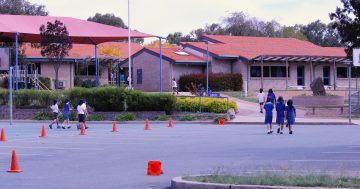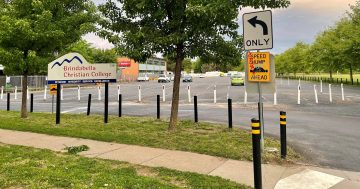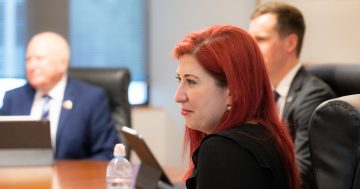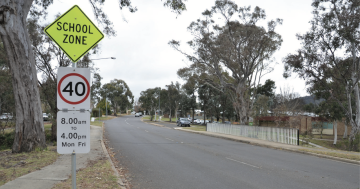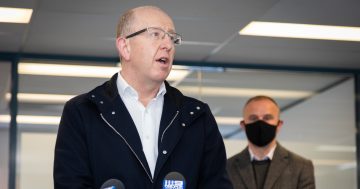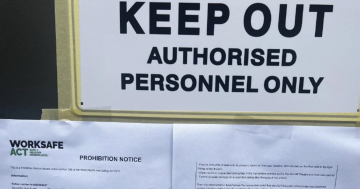
ACT independent schools are questioning Chief Minister Andrew Barr’s speed in moving to change legislation regarding sexual ‘conversion practices’. Photo: File.
A group of religious schools are accusing ACT Chief Minister Andrew Barr of using COVID-19 health regulations as a cover for rushing through a ban on ‘gay conversion therapy’ in the ACT.
In May 2018, former ACT Minister for Health, Meegan Fitzharris, announced the ACT Government planned to legislate to prohibit ‘conversion practices’, or physical, psychological or spiritual attempts to change a person’s sexual orientation from homosexual or bisexual to heterosexual.
Then in November 2019, the government launched the Capital of Equality First Action Plan 2019 and 2020. Outlawing conversion practices is part of this plan to further improve the lives of the local LGBTIQ+ community.
“Being told you are broken can break you,” said Chief Minister Barr at the time. “Every major medical association in Australia has publicly condemned conversion practices. However, they continue to take place, increasingly outside of the health system and often in dubious religious contexts.”
Last month, a “cross-section of stakeholders from across the education, disability, religious, health, LGBTIQ+ and legal sectors” were sent a fact sheet describing the proposed ban and given 18 working days to submit feedback. This was said to be in lieu of the standard public consultation “due to the ongoing impact of COVID-19.”
The Christian Schools Australia (CSA), Adventist Schools Australia (ASA), Australian Association of Christian Schools (AACS) and Islamic School of Canberra (ISC) – which together comprise more than 3000 students and teachers across the capital – submitted a paper to the ACT Government last week after becoming aware of what they call a “clandestine” consultation process.
They describe the approach as unacceptable for a law which allows for complaints to go through the ACT Human Rights Commission, as well as the creation of criminal offences, the regulation of health practitioners, and the treatment of conversion practices as a form of child abuse or neglect.
“The COVID-19 pandemic has not stopped ‘pop-ups’ being conducted for the SPIRE Project, nor a virtual information session being conducted in relation to Public Housing Renewal in Greenway,” the paper reads.
The fact sheet from the Chief Minister, Treasury and Economic Development Directorate describes conversion therapy as “any practice or treatment by any person that seeks to change, suppress and/or eliminate a person’s sexual orientation, gender identity and/or gender expressions.”
“This definition is breathtaking in its scope and frightening in its ambiguity,” the schools say.
“The short time frame, the selective nature of the engagement and lack of transparency, and the inadequacy of the information provided demand that the current process be abandoned and a full, transparent public inquiry into these important issues be undertaken.”
A 2018 study undertaken by the Human Rights Law Centre, LaTrobe University and Gay and Lesbian Health Victoria (GLHV) forms the basis for much of the evidence backing the bill. This includes 15 responses from people with experiences of conversion therapy between 1986 and 2016. The finding was that 10 organisations in Australia and New Zealand still offer some forms of conversion therapy.
At least four medical and psychology groups in Australian and New Zealand have made statements against conversion therapy.
The AIDS Action Council, A Gender Agenda and the ACT Human Rights Commission have all reported accounts given to them by Canberrans who have undergone conversion practices.
The question remains what these practices are and what practices the final bill will address.
During the past few months, Queensland and Victoria have been pursuing similar bans and have also run into complications.
Many people in the LGBTIQ+ community fear that if legislation merely targets professionals, it could drive the practices underground. Meanwhile, churches, religious schools and other groups are concerned a broad definition will impact the right to operate freely under their beliefs.
Victoria had six weeks of public online consultation. Last year, New Zealand left conversion therapy laws on the back-burner after deciding the issue required more work.
A spokesperson for the ACT Government says they received 51 submissions during the direct consultation period before the closing date of 29 June, and several more afterwards.
“The Association of Independent Schools of the ACT (AIS) were contacted through this round of direct consultation.”
Members of the AIS include the Canberra Grammar schools, non-systemic Catholic schools such as St Edmund’s College and Marist College, as well as the larger local Christian and Islamic schools – Trinity Christian School, Brindabella Christian College, Radford College and Islamic School of Canberra among others.
“The legislation is still being drafted, and as such, the definition is not yet finalised,” said the ACT Government spokesperson. “The research and consultation processes are being used to help shape the definition and excluded practices and other areas of the Bill.
“The ACT Government will publish a listening report summarising feedback from the direct consultation and how it will be used to inform the final Bill.”











